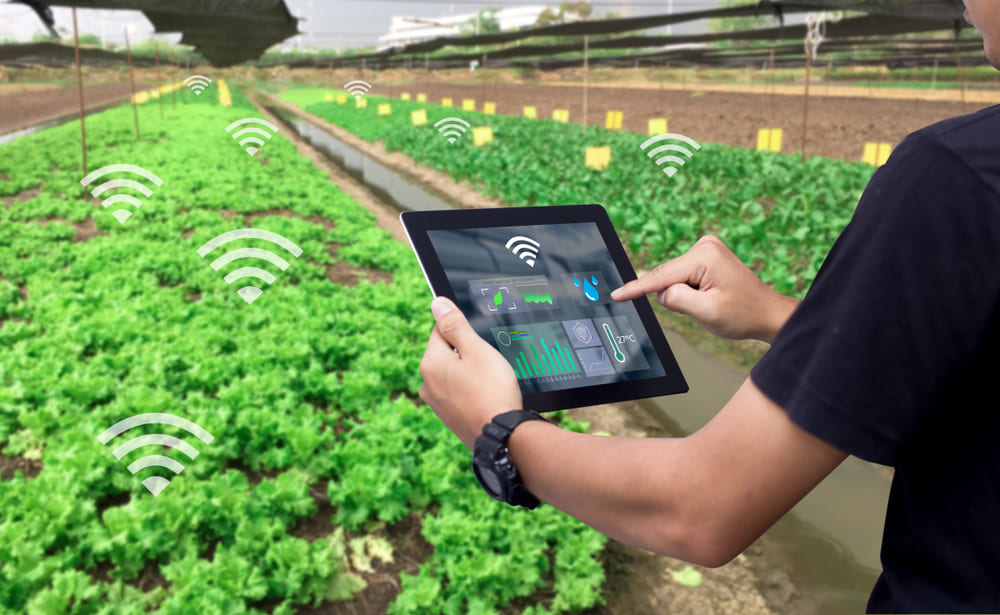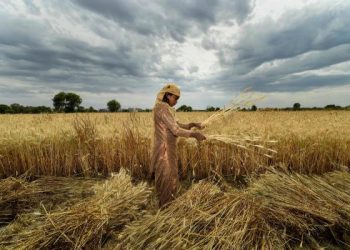Agriculture has been at the forefront of technological innovation for centuries, and the current digital transformation of rural areas is no exception. The integration of technology into agriculture has the potential to revolutionize the sector and bring significant benefits to farmers, rural communities, and the world as a whole.
Digital transformation of rural areas
The digital transformation of rural areas refers to the integration of technology and digital solutions into agriculture and rural communities. This transformation is driven by advancements in technology, such as the Internet of Things (IoT), artificial intelligence (AI), and cloud computing, which are providing new and innovative ways for farmers to manage their operations and increase their productivity.
The digital transformation of rural areas is helping to address some of the key challenges faced by farmers and rural communities, such as improving access to information, increasing efficiency and productivity, and reducing waste. Additionally, the digital transformation of rural areas is also creating new economic opportunities, such as the development of new agrotech businesses and the creation of new jobs in rural areas.

The benefits of the digital transformation of rural areas are significant and include increased food security, improved environmental sustainability, and the promotion of rural economic development. However, there are also challenges associated with this transformation, such as the need to develop infrastructure and support the development of technical skills in rural areas.
Despite these challenges, the digital transformation of rural areas represents a major opportunity to address some of the key challenges facing agriculture and rural communities, and it is important that policymakers, businesses, and other stakeholders work together to ensure that this transformation is inclusive and benefits all members of rural communities.
The Opportunities of Agtech
The integration of technology into agriculture, also known as agro-tech, offers a range of opportunities for rural areas, including:
- Increased efficiency and productivity: Precision agriculture technologies, such as precision planting and fertilization, can help farmers increase yields and reduce waste.
- Improved decision-making: Digital platforms, such as marketplaces for farm products, can provide farmers with access to real-time data and insights that can inform better decision-making.
- Enhanced food security: Agrotech can improve food security by providing farmers with access to new markets and by increasing the efficiency and sustainability of food production.
- Job creation and investment: The development of agrotech can create new jobs and attract new investment to rural areas.
- Improved quality of life: Agrotech can improve the quality of life in rural areas by providing access to education and healthcare services and creating new opportunities for entrepreneurship and innovation.
The digital transformation of rural areas through agrotech has the potential to bring significant benefits to farmers, rural communities, and the world as a whole.
The Challenges of Agrotech
The integration of technology into agriculture, also known as agro-tech, is not without its challenges. Some of the major challenges include:
- Access to technology: Many rural areas lack the infrastructure, including reliable electricity and internet connectivity, to support the widespread adoption of agrotech.
- Cost: The cost of agrotech technologies and equipment can be a barrier to adoption for many small and medium-sized farmers.
- Lack of technical skills: Farmers and rural communities may lack the technical skills and training required to effectively use agrotech.
- Data privacy and security: Agricultural data is often sensitive and private, and there are concerns about the security and privacy of this data when using digital platforms and technologies.
- Market structure: The current market structure for agricultural products and services may not be suited to the digital transformation of rural areas.
- Regulation: The regulatory environment for agrotech can be complex and may not be supportive of new technologies and business models.
Despite these challenges, the potential benefits of agro-tech and the digital transformation of rural areas are significant, and it is important to find ways to overcome these challenges in order to realize these benefits.
The Role of Policymakers

The role of policymakers in the digital transformation of rural areas is critical in ensuring that this transformation is inclusive and benefits all members of rural communities. Policymakers can play several key roles in supporting the integration of technology into agriculture, including:
- Infrastructure development: Policymakers can provide funding and support for the development of infrastructure, such as reliable electricity and internet connectivity, to support the widespread adoption of agrotech.
- Investment promotion: Policymakers can provide tax incentives, subsidies, and other financial support to encourage investment in agrotech and to make it more accessible to small and medium-sized farmers.
- Skills development: Policymakers can support the development of training programs and technical skills for farmers and rural communities to ensure that they are able to effectively use agrotech.
- Data privacy and security: Policymakers can develop regulations and guidelines to protect the privacy and security of agricultural data, while also promoting the use of digital platforms and technologies.
- Market structure: Policymakers can support the development of a market structure that is conducive to the digital transformation of rural areas and that benefits farmers, rural communities, and the wider economy.
- Regulatory environment: Policymakers can create a supportive regulatory environment that promotes innovation and growth in the agrotech sector while ensuring that these innovations are safe and sustainable.
In summary, policymakers play a crucial role in the digital transformation of rural areas, and it is important that they work with stakeholders from the private sector, civil society, and academia to ensure that this transformation is inclusive and benefits all members of rural communities.
Conclusion
Agtech has the potential to revolutionize the agriculture sector and bring significant benefits to rural areas. However, to fully realize the potential of agro-tech, it is important to address the challenges that come with this transformation, including the digital divide, the need to ensure that the benefits of agro-tech are distributed fairly, and the need for robust security and privacy measures.
By working together, farmers, policymakers, and technology providers can help to ensure that the digital transformation of rural areas is a positive and equitable process that benefits all members of the rural community.










